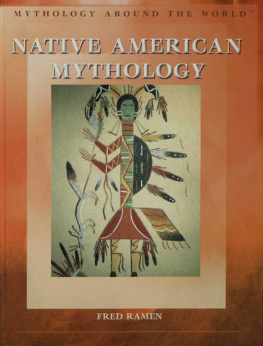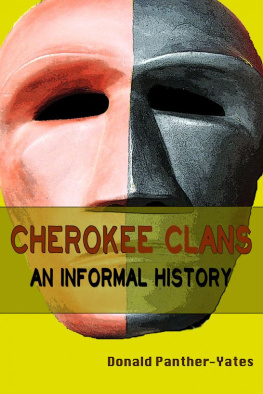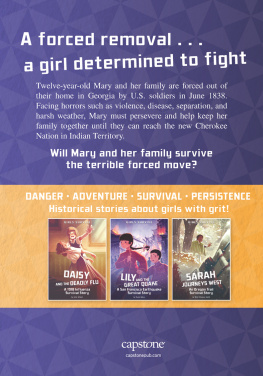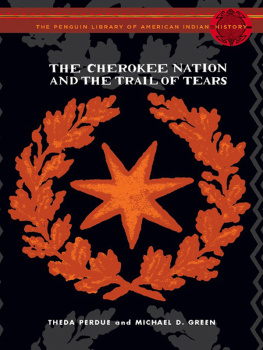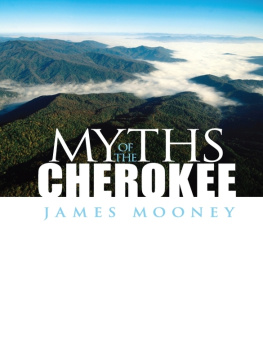The Cherokee Kid
CultureAmerica
Erika Doss
Philip J. Deloria
Series Editors
Karal Ann Marling
Editor Emerita
The Cherokee Kid
Will Rogers, Tribal Identity, and
the Making of an American Icon
amy m. ware
2015 by the University Press of Kansas
All rights reserved
Published by the University Press of Kansas (Lawrence, Kansas 66045), which was organized by the Kansas Board of Regents and is operated and funded by Emporia State University, Fort Hays State University, Kansas State University, Pittsburg State University, the University of Kansas, and Wichita State University
Library of Congress Cataloging-in-Publication Data
Ware, Amy M.
The Cherokee kid : Will Rogers, tribal identity, and the making of an American icon / Amy M. Ware.
pages cm (CultureAmerica)
Includes bibliographical references and index.
ISBN 978-0-7006-2100-2 (hardback)
ISBN 978-0-7006-2101-9 (ebook)
1. Rogers, Will, 18791935. 2. EntertainersUnited StatesBiography. 3. Humorists, AmericanBiography. 4. Indians of North AmericaEthnic identity. I. Title.
PN2287.R74W38 2015
792.7028092--dc23
[B]
2015006572
British Library Cataloguing-in-Publication Data is available.
Printed in the United States of America
10987654321
The paper used in this publication is recycled and contains 30 percent postconsumer waste. It is acid free and meets the minimum requirements of the American National Standard for Permanence of Paper for Printed Library Materials Z39.481992.
for
Shea and Nelia
contents
acknowledgments
The completion of this book took many years for many reasons, and Im thankful to those who helped along the way. The inspiring and thoughtful feedback provided by two of my heroesPhilip Deloria and the late Cherokee historian and author Robert Conleyhas made the revision process truly rewarding. Additional comments and suggestions from John Troutman and Andrew Denson helped me polish the book further. While on the research trail, Steve Gragert, former director of the Will Rogers Memorial Museum, assisted me in countless ways, numerous times. Steves deep knowledge of Rogerss life and his openness to researchers of all stripes make the museum and its archive a wonderful place to work and visit.
My dissertation committee, which guided the early version of this book, provided steadfast mentorship during my graduate work at the University of Texas at Austin. Jim Cox, Steve Hoelscher, Janet Davis, Shirley Thompson, Pauline Turner Strong, and UCLAs Duane Champagne each offered distinct and valuable input during this projects nascent stages. Id especially like to thank Jim, his partner Domino Perez, and their son Ewan James for their continued friendship, support, and brisket.
Several friends have spent significant time talking me through different aspects of this book. From its earliest inception, Becky Culyba, Sarah Quinn, and Heather Singleton have challenged me academically and supported me personally. My colleagues at UT Austinespecially Kirby Brown, Katy Young Evans, Tony Fassi, Ben Lisle, Jason Mellard, Amanda Moulder, Mike OConnor, Audrey Russek, Bryan Russell, and Tracy Wustereach contributed to this books completion in distinct and truly inspiring ways.
My career has taken some surprising turns over the past several years. A few years ago, Marc Musick and Kate Brooks hired me with little practical experience but a liberal arts doctorate. The staff at UT Austins Human Dimensions of OrganizationsArt Markman, Lauren Lief, and Lewis Millerbring laughter to my work every day. Art, without your kindness and understanding, Im not sure this book would have been completed while I worked full-time. Thank you.
My parents, Connie and Fleming, ensured that I received the best formal education possibleand deepened that education through heated political arguments around the dinner table. Without you, this book would not exist. Thanks, too, to my in-laws Dot and John Shea and my extended Connecticut family, who provided encouragement at every turn.
Each morning, I am greeted by my creative, smart, happy, hopeful, and generous daughter Nelia. She has been with me through this entire process and has been patient most of the time. Nelia, Im glad this book is done so I dont have to spend weekends away from you anymore.
My husband, Michael Shea, gave more blood, sweat, and tears than I did during the completion of this book. Shea: Ill never be able to repay you for all youve done to support me practicallychild care, housecleaning, cooking, yard workand emotionally. There arent adequate words to thank you enough.
introduction
the cherokee kid
Was Will RogersReallyan Indian?
This, the most common question I am asked in regard to my research, elucidates in a variety of ways why this book is important to the study of American Indian celebrity. The comedian, actor, journalist, and political pundit was indeed American Indian, as most books on Rogers mention, however briefly. What distinguishes this book from most other texts on Rogers is my attempt to showthat is, to deepen, refine, contextualize, and interrogatewhat those ties meant to Rogers, why they were significant to US popular culture during his lifetime, and how they demonstrate the importance of tribal specificity in the study of Native and American cultural histories.
The rub is this: Rogers wasnt only an American Indian; he was also a citizen of the Cherokee Nation. My exploration of the complex interplay of this distinctionbetween American Indian and Cherokee, in this casereveals still-common assumptions regarding Native authenticity in the history of American popular culture. These tenacious expectations, which persist despite significant academic clamoring, have denied Rogerss full inclusion in the canon of Native history.
Will Rogers (18791935), the son of a prominent Cherokee politician, was born and raised in the Cooweescoowee District of the Cherokee Nation, part of Indian Territory. By the time of his death in 1935, he was a household name across the United States. He left the Territory in 1902 and found lucrative employment in Texas Jacks Wild West Show. From the early 1900s to the 1920s, he worked the vaudeville circuits and headlined the Ziegfeld Follies as a political comedian and trick-roper. Throughout the 1920s and 1930s, he starred in nearly seventy movies, hosted a regular radio show, and penned more than four thousand syndicated editorials. He even ran for president in 1932. It was a gag, but FDR, who ran for office the same year, dropped him a quick line just to be sure: dont forget you are a Democrat by birth, training and tough experience and I know you wont get mixed in any fool movement to make the good old Donkey chase his own tail and give the Elephant a chance to win the race. Rogers was, to put it lightly, a Cherokee who carried substantial cultural capital in the United States during the first part of the twentieth century.
Rogers played an important cultural role for most American citizens in the early twentieth century by mediating the bifurcated American scene marked by a dwindling rural and regional America on one hand and an emerging urban and metropolitan nation on the other. There was trepidation and a resultant adherence to convention in small-town America in the 1920s. In cities such as New York, on the other hand, many mongrel urban dwellers became socially, artistically, and intellectually unbound by the increasingly diverse urbanity of the United States. For all Americans, population changes, technological advances, and the rise of consumer culture gave rise to both new and resurgent coping mechanisms. It was through his seeming rural sensibility, destabilized by a more subversive urban proficiency, that Rogers maintained his popularity among various groups of Americans. By bridging these seemingly divergent demographics, Rogers became a cultural centerpiece of the Interwar Years.




